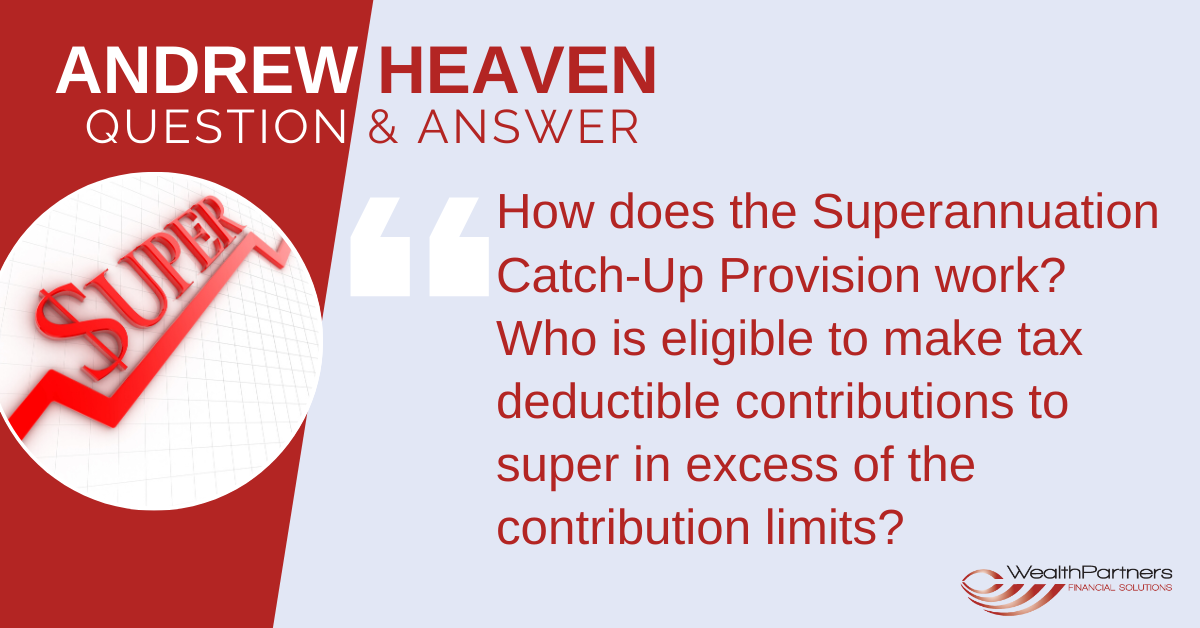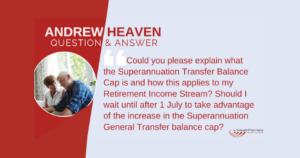Q: Could you please explain how the Superannuation “Catch Up Provisions” work. I am 53 and have a Super balance of $420,000. I earn $120,000 a year and have only received the 9.5% Employer Superannuation Contributions.
A: From 1 July 2018, individuals with a Superannuation balance of less than $500,000 on 30 June of the previous tax year have been able to carry forward their unused Concessional Contribution Cap for up to five years.
The Concessional Contribution Cap refers to the limit on the Concessional Superannuation contributions you can make in a Financial Year. This includes salary sacrifice and compulsory employer contributions, as well as any personal contributions which you may claim as a tax deduction in your tax return. The cap for the 2019-2020 tax year is $25,000.
Amounts of unused Concessional Contribution Cap arise when you have not fully used your Concessional Contribution Cap in a tax year. Provided the balance criteria is satisfied, individuals will be able to utilise their unused Concessional Contribution Cap on a rolling basis for a period of five years. Amounts that have not been utilised after five years will expire.
In your case, as you earn $120,000 and receive 9.5% Employer Superannuation Guarantee Contributions, you receive $11,400 of Concessional Contributions. Assuming you make no additional concessional contributions in this financial year, you will be eligible to carry forward $13,600 of unused Concessional Contribution Cap into future financial years from the 2019-20 tax year.
If your income in the 2018-19 tax year was the same as your current income, in the 2020-21 financial year you would be able to contribute $27,200 of your previously unused Concessional Contribution cap from prior years to make Concessional Contributions of up to $40,800 assuming you include your Employer’s SGC contribution of $11,400 for the 2020-21 tax year.
To be eligible to contribute to Superannuation you will need to be either under age 65 or satisfy the work test of 40 hours in a 30 day period in the tax year prior to making a contribution if older than 65 up to age 75.


